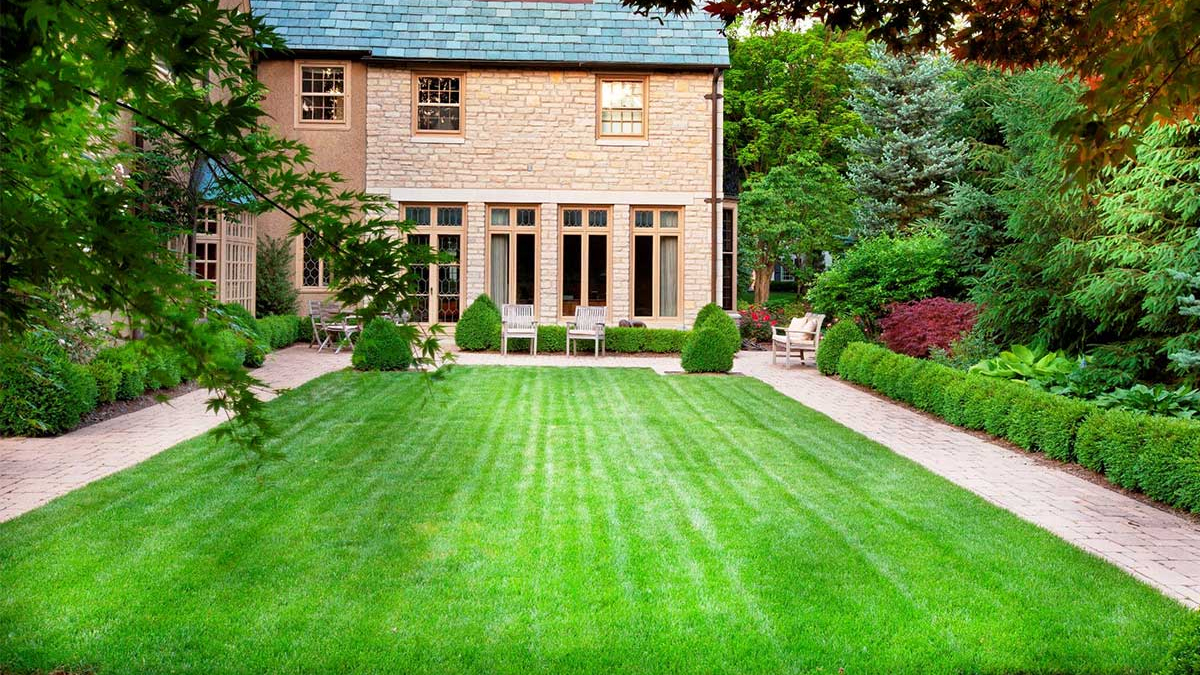Irrigation Solutions: Ensuring a Lush Landscape Throughout the Year
Maintaining a vibrant and healthy landscape requires a consistent and reliable water supply. While manual watering can be time-consuming and often inadequate, especially during periods of drought or high temperatures, a well-designed irrigation system can provide the precise amount of water your plants need, ensuring lush greenery and optimal growth year-round.
- Understanding Your Water Needs
Before installing an irrigation system, it’s crucial to assess your specific watering requirements.
- Plant Selection: Different plants have varying water needs. Drought-tolerant plants require less water, while others, such as lawns and flowering shrubs, may require more frequent irrigation.
- Soil Type: Soil type significantly influences water absorption and retention. Sandy soils drain quickly, while clay soils tend to retain water.
- Climate Conditions: Local climate, including rainfall patterns, temperature, and humidity, plays a critical role in determining water needs.
- Sun Exposure: Plants in full sun generally require more water than those in shade.
Contact Scenic Outdoors at (770) 287-4348 today!
- Types of Irrigation Systems
Several irrigation system options are available, each with its own advantages and disadvantages:
- Sprinkler Systems:
- Rotating Sprinklers: These traditional sprinklers rotate to cover a circular area.
- Impact Sprinklers: These sprinklers use a rotating arm to propel water through the air.
- Rotor Sprinklers: These high-pressure sprinklers cover larger areas and are suitable for lawns and open spaces.
- Drip Irrigation:
- This system delivers water directly to the roots of plants through a network of emitters.
- Highly efficient as it minimizes water loss through evaporation and runoff.
- Ideal for trees, shrubs, and flower beds.
- Micro-Spray Systems:
- These systems use small nozzles to deliver a fine mist of water to plants.
- Suitable for delicate plants and container gardens.
- Soaker Hoses:
- These hoses slowly release water over a specific area.
- Ideal for vegetable gardens and flower beds.
Proper design and installation are crucial for the effectiveness and efficiency of your irrigation system.
- Professional Design: Consult with a qualified irrigation specialist to design a system that meets your specific needs and considers factors such as water pressure, soil type, and plant requirements.
- Proper Installation: Ensure professional installation to avoid leaks, uneven watering, and potential damage to your landscape.
- Zone Control: Consider installing a zone control system to allow for independent watering of different areas of your landscape, optimizing water usage.
- Irrigation System Maintenance
Regular maintenance is essential to ensure the optimal performance and longevity of your irrigation system.
- Regular Inspections: Conduct regular inspections to check for leaks, broken sprinkler heads, and clogged emitters.
- Seasonal Adjustments: Adjust watering schedules based on seasonal changes in weather and plant needs.
- Winterization: Prepare your irrigation system for winter by blowing out the lines to prevent freezing and damage.
Did You Know?
Properly designed and maintained irrigation systems can significantly reduce water consumption compared to manual watering, helping to conserve this precious resource.
Investing in a well-designed and professionally installed irrigation system can transform your landscape, ensuring healthy, vibrant plants throughout the year.
Call Scenic Outdoors at (770) 287-4348 to schedule a consultation and discuss your irrigation needs.



